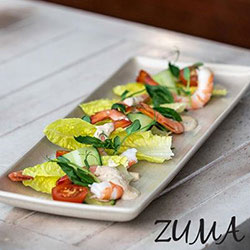-
Beverage Service
- Stemless Glassware
- Spirit Short & Shot Glasses (70)
- Tumblers Tall (161)
- Spirit Tall (33)
- Tumblers Short (157)
- Stemless Wine Glasses (12)
- Stemless Specialty Glasses (23)
- Beer Glasses
- Steins Glasses (7)
- All-purpose Beer (32)
- Mugs Glasses (13)
- Conical Glasses (27)
- Boutique Glasses (28)
- Pilsner Glasses (21)
- Washington Glasses (15)
- Stemware
- Margarita Glasses (4)
- Martini Glasses (24)
- White Wine (113)
- Red Wine (111)
- Goblets & Water (20)
- Liqueur & Ports (28)
- Wine Tasters (16)
- Champagne Glasses (79)
- Cocktail Glasses (56)
- Specialty Glassware
- Storage Jars (6)
- Glassware Gift Sets (8)
- Dessert & Punch Bowls (14)
- Glass Bottles & Jugs (47)
- Decanters & Carafes (38)
- Tea & Coffee
- Tea Infusers (47)
- Porcelain Cups & Saucers (237)
- Porcelain Mugs (34)
- Porcelain Coffee Pots (1)
- Porcelain Teapots & Infusers (36)
- Porcelain Creamers & Sugar Pots (38)
- Tea & Coffee Glasses (15)
- Coffee Pots & Presses (45)
- Coffee & Tea Accessories (60)
- Porcelain Espresso Cups (29)
- Porcelain Chinese Tea Cups & Pots (5)
- Stoneware Mugs (3)
- Barware
- Enviro Friendly (13)
- Ashtrays (14)
- Cocktail Shakers & Mixing Utensils (65)
- Ice Buckets & Beverage Tubs (44)
- Wine Coolers (4)
- Punch Bowls (7)
- Water Jugs (34)
- Stoppers & Seals (6)
- Bottle Openers (24)
- Glass Baskets & Wash Racks (86)
- Bar Accessories (93)
- Spirit Measures & Pourers (43)
- Ice Tongs & Bar Scoops (17)
- Mats & Caddies (6)
- Drink Trays (15)
- Polycarbonate Products
- Jugs & Carafes (5)
- Polycarb Cocktail Glasses (6)
- Beer Glasses (19)
- Tumblers & Rocks (45)
- Wine & Flutes (13)
- Specialty Polycarbonate (4)
- Food & Beverage
- Beverage (2)
- Mini Bar (20)
-
Equipment
-
Kitchen
- Knives
- Bread (28)
- Boning & Filleting (44)
- Butcher (20)
- Carving (21)
- Chef (54)
- Paring & Utility (76)
- Oriental (9)
- Knife Gift Sets (18)
- Knife Accessories (78)
- Bakeware
- Christmas Bakeware (0)
- Silicon Bakeware (68)
- Moulds (80)
- Muffin Trays (7)
- Loaf Pans (14)
- Decorating Tools (94)
- Tins (52)
- Cutters (31)
- Brushes (30)
- Rolling Pins (22)
- Baking Pans & Trays (168)
- Baking Utensils & Accessories (73)
- Kitchen Storage
- Storage Canisters (1)
- Decorative Storages (0)
- Buckets (14)
- Jar Storage (50)
- Cutlery Storage (17)
- Plastic Storage (152)
- Kitchen Accessories
- Trolleys & Stands (26)
- Plastic Cutting Boards (97)
- Cooking & Recipe Books (0)
- Dispensing Bottles (115)
- Shakers (19)
- Thermometers & Timers (30)
- Pot Holders & Tea Towels (5)
- Slicers & Cutters (34)
- Sieves & Sifters (25)
- Scoops (28)
- Mortar & Pestle (10)
- Funnels (16)
- Scales & Measures (77)
- Wood Cutting Boards (18)
- Food Mills (25)
- Kitchen Salad Bowls (1)
- Kitchen Mixing Bowls (67)
- Gadgets (47)
- Kitchen Utensils
- Graters & Shavers (12)
- Can Openers & Presses (24)
- Juicers & Zesters (8)
- Cooking Tongs (102)
- Basting Spoons (33)
- Utensils Miscellaneous (59)
- Ice-cream Utensils (30)
- Whisks (42)
- Scrapers (58)
- Tenderizers & Hammers (9)
- Skimmers (27)
- Scissors (5)
- Pizza & Pasta Utensils (19)
- Peelers & Corers (22)
- Turners & Spatulas (78)
- Mashers & Mincers (26)
- Skewers (11)
- Seafood Utensils (10)
- Wooden Spoons (28)
- Solid Spoons (11)
- Perforated & Slotted Spoons (35)
- Ladles (49)
- Cookware
- Casserole Dishes (111)
- Other Cookware (27)
- Woks (32)
- BBQ Cookware (6)
- Stockpots (108)
- Saute & Paella Pans (40)
- Roasting Pans & Racks (38)
- Frying Baskets (43)
- Poaching and Steaming (5)
- Cookware Sets (5)
- Frypans and Skillets (159)
- Saucepans & Lids (118)
- Colanders & Strainers (116)
- Molecular Gastronomy
-
Packaging
-
Porcelain
-
Service
- Cutlery
- Cheese Knife (14)
- Carving Cutlery (6)
- Cake Forks (35)
- Bread & Butter (23)
- Soup Spoon (46)
- Steak Knives (32)
- Teaspoon (53)
- Table Spoon (24)
- Table Knife (58)
- Table Fork (55)
- Coffee Spoon (42)
- Soda Spoon (33)
- Cutlery Sets (1)
- Cultery Gift Sets (3)
- Fish Cutlery (32)
- Fruit Cutlery (27)
- Dessert Spoon (58)
- Dessert Knife (47)
- Dessert Fork (48)
- Serving Sets (4)
- Service Utensils
- Serving Ladles (4)
- Serving Tongs (11)
- Spaghetti Servers (5)
- Serving Spoons (22)
- Serving Forks (13)
- Salad Spoons (11)
- Salad Forks (16)
- Cake Servers (16)
- Table Top
- Furniture (7)
- Tableware (14)
- Aged Care Service (75)
- Egg Cups (3)
- Condiment Service (48)
- Table Decor (42)
- Table Dispensers (25)
- Glass & Stainless Steel Bowls (10)
- Cake Stands & Covers (33)
- Table Numbers & Signs (128)
- Plate Covers (11)
- Gravy Boats (11)
- Serving Trays & Platters (175)
- Salt & Pepper Mills & Grinders (69)
- Vases (3)
- Melamine Products
- Condiment Dishes (36)
- Plates & Bowls (68)
- Platters (151)
- Kids Sets (0)
- Cups (25)
- Buffet Service
- Signage (22)
- Bain Marie Pans (309)
-
Brands
- 100 Chef
- Abert Cutlery
- Ai De Chef
- Alkan Zicco
- AluChef
- Amefa
- APS
- Arcoroc
- Arcos
- Art De Cuisine
- Ateco
- Athena
- Australian Fine China
- Avanti
- Bakemaster
- Belix
- Bevande
- BioPak
- Birko
- Bocini
- Bonna
- Bonzer
- Bormioli Rocco Professional
- Brabantia
- BrewEst2015
- Cater rax
- Caterchef
- Cavalier Stainless Steel
- Chasseur
- Chef Inox
- Cheforward
- Churchill
- Churchill Stonecast
- Churchill Studio Prints
- Closed Loop
- Compass
- Connoisseur
- Cooper Atkins
- Crisa
- Crown
- Cuisinart
- de Buyer
- Decor
- Detpak
- Duralex
- Eclipse
- Edco
- FIFO Innovations
- Fisko
- Fortessa
- Frenti
- Furi
- Garcima
- General Cutlery
- Ghidini
- Global
- Guery
- HosPro
- Huskee
- Inoxmacel
- IVO
- JAB Design Aust
- Jakobsen Design
- JiWins
- Jonas
- Kamati
- Kilner
- La Tapa
- Lava Cast Iron
- Libbey
- Luigi Bormioli
- Luzerne
- Matfer Bourgeat
- Maxinox
- Maxipan
- Metaltex
- Moda
- Mundial
- Nude
- Nutri Ninja
- Ocean
- Oppenheimer
- OXO
- Paderno
- Pasabahce
- Peer Sorensen
- Polesy
- Polysafe
- Pujadas
- RAK Porcelain
- RCR Crystal
- Rene Ozorio
- Revol
- Robert Welch
- Robotime
- Roltex
- Royal Bone China
- Royal Leerdam
- Royal Porcelain
- Rubbermaid
- Ryner
- Ryner Glassware
- Ryner Melamine
- Ryner Tableware
- Sant Andrea
- Scanpan
- Schott Zwiesel
- Serax
- Serroni
- Stanley Rogers
- Stolzle Lausitz
- Studio William
- Sunnex
- Tablekraft
- Thermo Hauser
- Tramontina
- Trenton
- Trenton Basics
- UashMama
- Uber Bar Tools
- Vicrila
- Victorinox
- Viva
- Waring
- Weck Jars
- Wenger Knives
- Westmark
- White Magic
- Wiltshire
- Wiltshire Staysharp
- Wusthof
- Zanzi
- Zicco
- Zuma
-
Articles
A Brief History And Description Of A Kitchen Necessity, The Rolling Pin
Thursday, July 23, 2009
Wooden rolling pins have been around for decades. They are used for flattening piecrust dough, cookies, wafers, biscuits, and crackers. Rolling pins of varied types and materials provide benefits over another, because they are utilized for a variety of tasks in cooking and baking. Many rolling pins include inlays of dark woods, such as cherry, mahogany, applewood, beech, pine, sycamore, or walnut.
Types of rolling pins include:
Rod- Thin rods usually carved out of wood at around 2-3 cm in diameter. They are used by rolling the rod over the dough using the palm. The pins can be tapered at one or both sides for additional pivot control in specific tasks such as making pie shells.
Roller- Made of a thick heavy roller composed of a range of materials around 7-10 cm in diameter with slimmer handles that run through the inside of the roller. They are used by grabbing the handles and driving the pin over the dough.
We are most familiar with rolling pins that have two handles with a weighty wooden cylinder that rolls independently between them using ball bearings. This pin has an easy action which makes it easy to make dough of level thickness.
Rolling pins come in a range of sizes, shapes and materials including wood, stainless steel, plastic, marble and glass. A few are hollow and can be filled with cold or warm water to better roll a preferred food. Marble rolling pins are frequently cooled in a refrigerator for keeping a cold dough for making puff pastry.
Wooden rolling pins have been in use the longest and are the most familiar, many being no more than cylinders of wood. But, knob-ended rolling pins came before those with the handles shaped in a single piece with the roller. These utensils were typically home-produced until they began to be factory made in the mid-19th century. Extravagant wooden rolling pins were attractively shaped or carved and many were produced by Shakers.
Cooks frequently special ordered rolling pins with distinct ends for particular requirements. Distinctive rolling pins had flourishes which were usually in the shapes of hearts, circles, or diamonds. Sailors at sea shaped distinguishing rolling pins of lignum vitae decorated with pegs of whale bone to give to their love interests.
Dont miss another deal!
Join us and start saving!
ABOUT US - Cre8 Global
Cre8 Global is your Favourite Aussie Hospitality Shop supplying quality kitchen items to Sydney, Melbourne, Brisbane, Perth, Adelaide and all of Australia.
SERVICES
CONTACT US
1300 998 768
sales@hospitalityproducts.com.au
Normal business hours 8am to 4pm Monday-Thursday, 8am to 3pm Friday
CUSTOMER SERVICE
MEMBER LINKS





